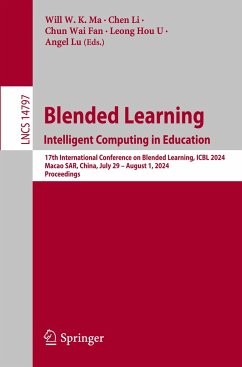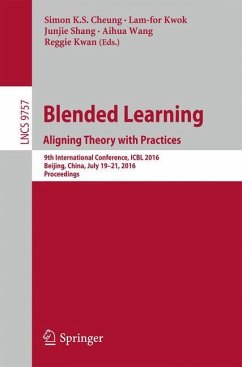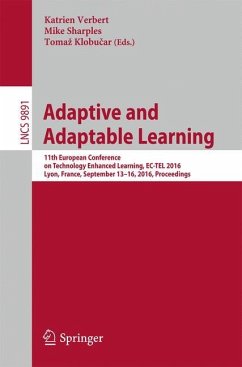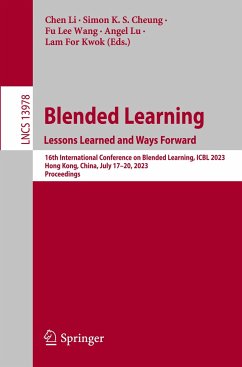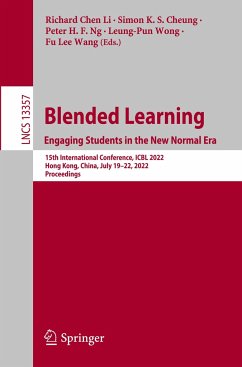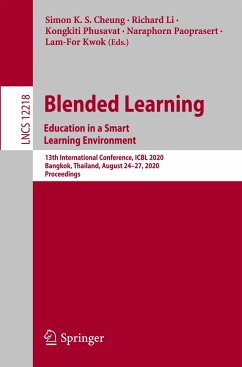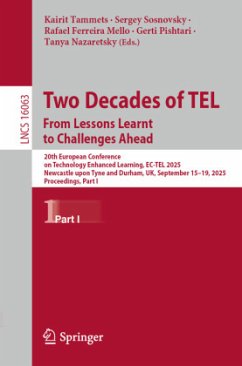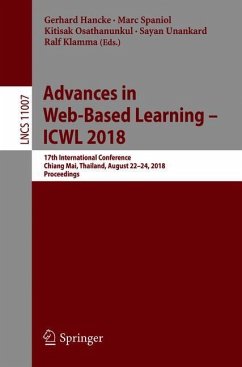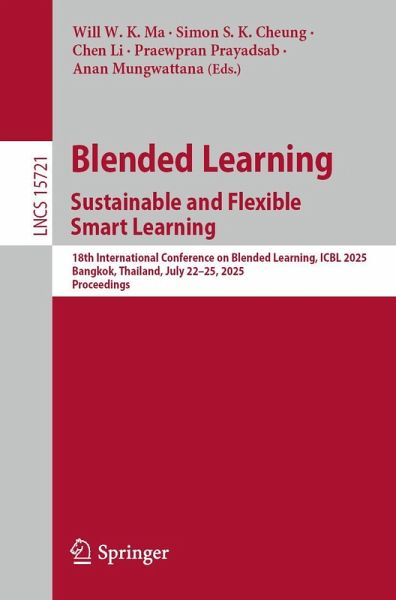
Blended Learning. Sustainable and Flexible Smart Learning
18th International Conference on Blended Learning, ICBL 2025, Bangkok, Thailand, July 22-25, 2025, Proceedings
Herausgegeben: Ma, Will W. K.; Cheung, Simon S. K.; Li, Chen; Prayadsab, Praewpran; Mungwattana, Anan

PAYBACK Punkte
49 °P sammeln!
This book constitutes the refereed proceedings of the 18th International Conference on Blended Learning, ICBL 2025, held in Bangkok, Thailand, during July 22-25, 2025.
The 24 full papers included in this book were carefully reviewed and selected from 60 submissions. They were organized in topical sections as follows: Keynotes, AI and Robotics in Education, Innovative Teaching Methods in Blended Learning, Pedagogical Strategies and Student Engagement, Evaluation and Feedback in Blended Learning, Data-Driven Learning Analytics and Context-Aware Systems.
The 24 full papers included in this book were carefully reviewed and selected from 60 submissions. They were organized in topical sections as follows: Keynotes, AI and Robotics in Education, Innovative Teaching Methods in Blended Learning, Pedagogical Strategies and Student Engagement, Evaluation and Feedback in Blended Learning, Data-Driven Learning Analytics and Context-Aware Systems.



